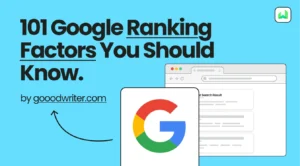Search Engine Optimization, or SEO, is the practice of improving your website to make it more visible on search engines like Google.
When people search for something related to your business, SEO helps your website appear higher in the search results. This means more people can find you, leading to more visitors and potential customers.
In simple terms, SEO is like making sure your store is in a busy, well-known area rather than a hidden alley.

Understanding the Importance of SEO
Why is SEO important? Imagine having a great website with fantastic products or services, but no one visits.
Without SEO, your website is like a billboard in the desert — no one sees it.
SEO is essential because it drives organic traffic to your website. Organic traffic refers to people who find your site through search engines without you paying for ads. This traffic is valuable because these visitors are actively searching for something you offer. By optimizing your site, you can attract more of these potential customers.
For example, if you own a bakery in New York, you want people searching for “best bakery in New York” to find your website easily. With good SEO, your website could be one of the top results, bringing more customers through your door.
How Search Engines Work
Search engines like Google use algorithms to rank websites. These algorithms consider various factors, such as the relevance of your content, the quality of your site, and how many other sites link to yours.
The goal of these algorithms is to provide the best possible answer to a user’s query.
When someone types a search query, the search engine scans its database to find the most relevant pages. These pages are then ranked based on how well they meet the user’s needs. The higher your website ranks, the more likely it is to get clicks.
For instance, if someone searches for “how to bake a chocolate cake,” the search engine will rank pages that provide clear, helpful instructions on baking a cake.
If your page is well-optimized and offers valuable content, it has a better chance of ranking high.
Types of SEO
There are different types of SEO, each focusing on specific areas:
On-Page SEO
This involves optimizing the content on your website. It includes using the right keywords, creating quality content, and ensuring your site is user-friendly.
For example, if your page is about “best shoes for running,” your content should include that phrase naturally and provide useful information about running shoes.
Off-Page SEO
This focuses on building your website’s reputation outside of your content. The primary method is through backlinks — when other websites link to yours. The more reputable sites that link to you, the more search engines trust your site.
For example, if a popular running blog links to your shoe store, it boosts your credibility.
Technical SEO
This involves optimizing your website’s backend. It includes improving site speed, and mobile-friendliness, and ensuring search engines can crawl your site easily.
For instance, if your website loads quickly and works well on smartphones, it will rank better.
Local SEO
This is crucial for businesses that operate in specific locations. It focuses on optimizing your site for local search queries.
For example, if you run a coffee shop in Chicago, you want to appear in searches like “coffee shop near me” or “best coffee in Chicago.”
10 Reasons Why Your Website Needs SEO
In today’s digital age, having a website is just the beginning. To truly stand out and attract your target audience, you need to optimize your site for search engines.
SEO, or Search Engine Optimization, is the key to making your website more visible, credible, and successful. But why exactly does your website need SEO?
Here are ten compelling reasons that highlight the importance of SEO for your online presence.
1. Site Visibility: Increases Your Online Presence
SEO stands for search engine optimization. SEO is the process of taking steps to help a website or piece of content rank higher on Google. By improving your site’s visibility, SEO ensures that more people can find your website when they search for related topics, products, or services.
2. Traffic: Drives High-Quality Organic Traffic
SEO stands for search engine optimization. SEO is the process of taking steps to help a website or piece of content rank higher on Google. By optimizing your content and keywords, SEO attracts organic traffic — visitors who are actively searching for what you offer.
3. Credibility: SEO Builds Trust with Your Audience
SEO improves your website’s credibility by ensuring it ranks highly on search engines. When users see your site at the top of search results, they are more likely to trust your brand as an authority in your industry.
4. User Experience: Enhances Usability
SEO involves optimizing your site for better navigation, faster loading times, and mobile friendliness. This not only helps search engines index your site but also improves the user experience, keeping visitors engaged and more likely to convert.
5. Cost-Effective: SEO Offers Long-Term Value
Unlike paid advertising, where traffic stops when the budget runs out, SEO provides long-term results. Once your site ranks well, you can attract continuous traffic without ongoing ad spend, making SEO a cost-effective strategy.
6. Competitive Edge: SEO Helps You Stay Ahead
Most businesses are already investing in SEO. By optimizing your site, you ensure that you remain competitive in your market. Without SEO, you risk being outranked by competitors and losing potential customers.
7. Audience Insights: SEO Provides Valuable Data
SEO tools offer insights into user behavior, search patterns, and keyword performance. This data helps you understand your audience better and refine your marketing strategies to meet their needs more effectively.
8. Brand Awareness: SEO Boosts Brand Recognition
As your website climbs the search rankings, more users will become familiar with your brand. Repeated exposure through high rankings helps establish your brand in the minds of consumers, leading to increased recognition and trust.
9. Local Reach: SEO Attracts Nearby Customers
Local SEO is crucial for businesses with physical locations. By optimizing your site for local searches, you can attract customers in your area who are searching for the services or products you offer, driving foot traffic to your store.
10. Long-Term Strategy: SEO Delivers Sustainable Results
SEO is not a quick fix but a long-term strategy. The efforts you invest in optimizing your site today can yield results for years to come, providing a strong foundation for your digital presence and future growth.
Bottom Line
SEO is not just about pleasing search engines — it’s about creating a great user experience. By understanding and applying SEO, you can improve your website’s visibility, attract more visitors, and grow your business. As search engines evolve, so does SEO, making it a continually important part of digital marketing.
If you’re serious about mastering SEO, make sure to follow my profile. I’ll be sharing more tips and insights in my full SEO series, helping you stay ahead in the ever-changing digital landscape.
Next Steps
Doing a website or a blog is no easy task. It needs a greater effort to keep it on the line. That’s why we created a blogging guide for anyone who is struggling to win the world.
- Every resource related to blogging (Beginners, Intermediates, & Pros)
- Make your website look beautiful (Design guide)
- Research for best keyword strategies
Happy blogging.




